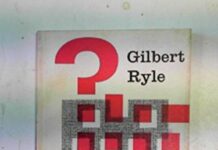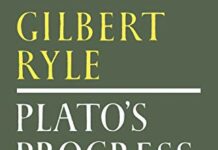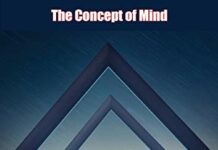
Ebook Info
- Published: 2009
- Number of pages: 557 pages
- Format: PDF
- File Size: 2.03 MB
- Authors: Gilbert Ryle
Description
Gilbert Ryle was one of the most important and yet misunderstood philosophers of the Twentieth Century. Long unavailable, Collected Essays 1929-1968: Collected Papers Volume 2 stands as testament to the astonishing breadth of Ryle’s philosophical concerns. This volume showcases Ryle’s deep interest in the notion of thinking and contains many of his major pieces, including his classic essays ‘Knowing How and Knowing That’, ‘Philosophical Arguments’, ‘Systematically Misleading Expressions’, and ‘A Puzzling Element in the Notion of Thinking’. He ranges over an astonishing number of topics, including feelings, pleasure, sensation, forgetting and concepts and in so doing hones his own philosophical stance, steering a careful path between behaviourism and Cartesianism. Together with the Collected Papers Volume 1 and the new edition of The Concept of Mind, these outstanding essays represent the very best of Ryle’s work. Each volume contains a substantial preface by Julia Tanney, and both are essential reading for any student of twentieth-century philosophies of mind and language.Gilbert Ryle (1900 -1976) was Waynflete Professor of Metaphysics and Fellow of Magdalen College Oxford, an editor of Mind, and a president of the Aristotelian Society. Julia Tanney is Senior Lectuer at the University of Kent, and has held visiting positions at the University of Picardie and Paris-Sorbonne.
User’s Reviews
Reviews from Amazon users which were colected at the time this book was published on the website:
⭐Excellent!!!
⭐I bought both volumes of Gilbert Ryle’s COLLECTED PAPERS in the early 1980s when they were first released. To this day I’ve not read many of the essays in this set, but I’ve read many again and again. Most philosophers I’ve read, I’ve read to understand the history of philosophy or the impact that they made on the history of philosophy. Gilbert Ryle I have read primarily to learn from. He is one of the few philosophers who has exerted a sizable influence on the way that I think and philosophize, part of a short list that includes people like Wittgenstein and Kierkegaard. Ryle does not have much of a positive program to offer. He has no grand scheme or ambitious metaphysics. What I love is the way that he carefully sifts through ideas in his uniquely commonsensical manner, separating the wheat from the chaff. Ryle is the epitome of the British commonsense thinker, a master at detecting bunkum and sheer silliness. Anyone going into philosophy should make it a habit to reread “Systematically Misleading Expressions” at least once a year.In the United States Ryle sometimes falls through the cracks. The thing for which he may be best known is his expression (from his book THE CONCEPT OF MIND) explaining Descartes’ philosophy of mind-body dualism, “the ghost in the machine.” Arthur Koestler borrowed the expression for a book title and Sting borrowed it for a Police album. As most people know, philosophy as practiced in America is dominated by so-called Analytic philosophy, dominated by those following in the footsteps of Gottlob Frege and his two best-known students, Rudolph Carnap and Ludwig Wittgenstein, as well as the earlier work of Bertrand Russell. What gets left out all sometimes are the ordinary language philosophers. The analytical philosophers differ from the ordinary language philosophers in their belief in the centrality of mathematical logic and science as the ultimate criterion of truth. And even though Wittgenstein after his return to philosophy in the 1930s was opposed to this way of doing philosophy, he is misread in such a way as to be deemed part of that tradition. The ordinary language philosophers were not so sanguine about the importance of science and while they were keen on making sense they didn’t necessarily believe that it was to be gained through symbolic logic. They even found some of the sillier pretensions of the analytic philosophers to be flat out wrong. When analytic philosophers wanted to insist that only statements open to scientific verification made sense, that is, could be said to be true or false. It was a patently absurd position, but the Anglo-American world academia did not begin to jettison the conceit until J. L. Austin’s paper “Performative Utterances.” Austin identified a wide range of statements that clearly were not nonsensical but were also not open to true/false evaluation. Saying “I do” in a marriage ceremony clearly helps establish a marriage, but it would seem odd to say that one could then ask, “Well, is it true that by saying that they are married?” Austin created a gap in what was known as the verification theory of meaning, a gap large enough for subsequent philosophers to drive trucks through. Although many philosophers in both Great Britain and the United States were identified as ordinary language philosophers, my two favorites were Austin and Ryle.Unlike most American analytic philosophers who were his contemporaries, Ryle was open to reading and interacting with a wide range of thinkers. While reading Heidegger was anathema to most analytic philosophers, Ryle read him with insight along with other European thinkers. He also read widely in the history of philosophy, and even wrote a fascinating essay (contained in Volume One of this COLLECTED PAPERS) on Jane Austen as a moralist. Paul L. Holmer, my teacher at Yale Divinity School, told me that he and Ryle had many exchanges in what turned out to be the final year of his life concerning Kierkegaard, who Ryle had begun reading with considerable passion. During a time when too many philosophers were willing to relegate too many other thinkers to the outer darkness, Ryle was willing to read broadly and with an open mind. But throughout all of his writing, Ryle was determined to cut through nonsense. There is an air of sanity to everything he writes and while you may not always agree with him, you won’t often (or, actually, ever) find him absurd.The two volumes reprint the original set published in 1971. This is not a new publication, but it is welcome for all that. Part of me wishes that instead of reprinting these two volumes Routledge would instead have opted for a single volume collecting his most important essays. A less expensively priced volume might have significantly expanded his readership. This two-volume reprint is a boon for scholars and his more serious students, but the cost will be prohibitive to all but the most dedicated readers of Ryle. Still, even if you have to go to a library to read these essays, I strongly recommend anyone doing so.
⭐The Collected papers of one of the leading philosophers of the last century
⭐It gives me an important collection af essays by a philosopher i have valued for 50 years. Ryle is great
Keywords
Free Download Collected Essays 1929 – 1968: Collected Papers Volume 2 1st Edition in PDF format
Collected Essays 1929 – 1968: Collected Papers Volume 2 1st Edition PDF Free Download
Download Collected Essays 1929 – 1968: Collected Papers Volume 2 1st Edition 2009 PDF Free
Collected Essays 1929 – 1968: Collected Papers Volume 2 1st Edition 2009 PDF Free Download
Download Collected Essays 1929 – 1968: Collected Papers Volume 2 1st Edition PDF
Free Download Ebook Collected Essays 1929 – 1968: Collected Papers Volume 2 1st Edition



